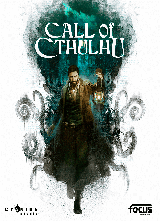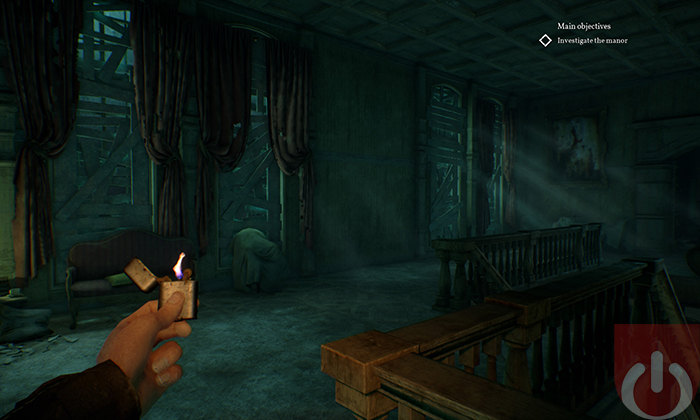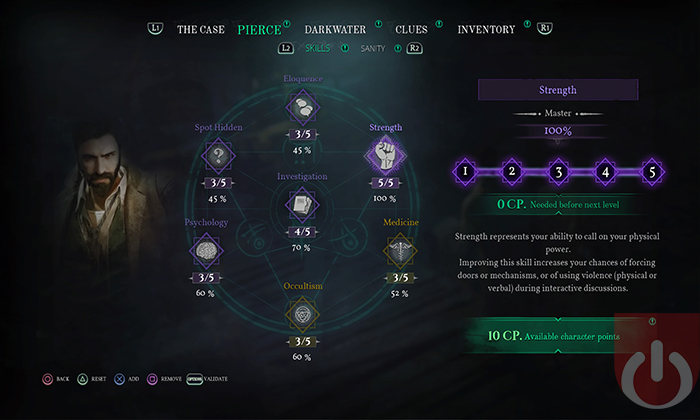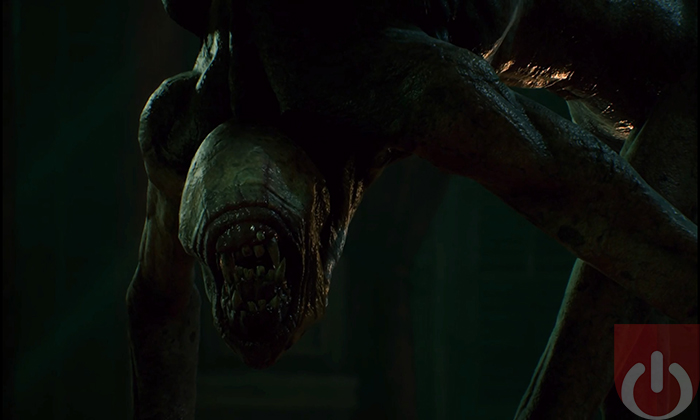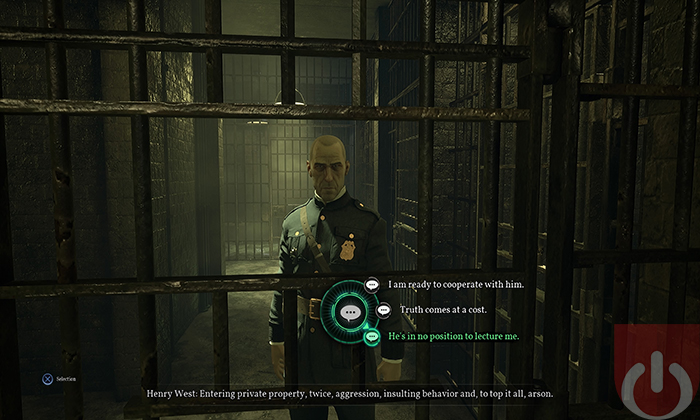Call of Cthulhu
No matter what you might personally think of HP Lovecraft and his body of work, the impact he had on modern pop culture is undeniably immense. Modern storytellers throw around elements of his dark mythos constantly and his popularity is almost cult-like. There have been quite a few games over the years that have tried to capture his work (or just blatantly stolen from it), but few have managed to do it in a particularly memorable way.
The latest to follow the path of tentacled madness is Focus Entertainment and developer Cyanide Studios’ Call of Cthulhu. This is a first-person take on Lovecraft’s classic horror-infused detective tales, which liberally takes inspiration from a lot of places – Dishonored, Alien: Isolation, and Focus’s own (excellent) Sherlock Holmes series, among others. Unfortunately, it doesn’t have the chops to match that ambitious pedigree.
Focus describes Call of Cthulhu as an “investigative RPG” and claims to use the exceptional same-named Chaosium tabletop RPG as its inspiration. Calling this game an RPG would be a stretch though. While you control WWI-vet and private dick, Edward Pierce, from a first-person view, the game feels more like an old-school point and click adventure or a hidden objects game. Most of the it involves wandering around the perpetually dark and rainy dramatically-named Darkwater Island looking for things to press the ‘interact’ button on. Aside from hidden object searches, there are some very sketchy stealth sequences, lots of interactive dialogue, and the game’s “investigation mode”. With one brief exception, there’s no combat at all.
As Edward talks to people, pick things up, and hit switches, he earns points for improving stats like Psychology, Perception, Investigation, Medicine, and Occult knowledge. There’s very little explanation about what these stats actually do beyond providing additional dialogue choices and (supposedly) allowing Edward to spot clues more easily.
The story opens with Pierce being hired to investigate the death of rich heiress and creepy artist, Sarah Hawkins, and her family. As expected, things are not as they seem in Darkwater’s dying whaling town and Pierce soon finds himself in deep dealing with horrible nightmares, creepy locales, a booze-smuggling gang leader, and, as the game progresses, more and more horrors of the occult.
Call of Cthulhu hits all the expected tropes for Lovecraftian horror. You’ll explore decaying old mansions once filled with the decadence of a rich family, hidden underground tunnels and cult lairs, an old bookstore, and, of course, a hospital and asylum with very questionable hygiene standards and terrible secrets. True to Lovecraft’s original writings, the natives are mostly boorish stereotypes, evil tentacled horrors lurk in the dark, and there’s much talk of madness.
Sanity (or the lack thereof) is a central theme in Lovecraft’s work. So, it’s no surprise to see the concept used here. As Edward progresses, he gets more and more traumatized. In fact, the game keeps tracks of the various traumas he’s endured (they’re almost treated like achievements). Some seem unavoidable, but others are more optional. Like should Ed read these strange books with covers of etched human flesh he keeps finding?
Of course, he should! I mean, if I saw one, I’d definitely read it.
Edward’s sanity level is mostly a facet of the ending, but also appears to affect dialogue choices. Dialogue is a key part of the game and the more Edward explores and investigate, the more clues he finds that allow for more varied response options. Examining medical and occult books and artifacts increases his stats in those areas and also unlock even more special dialogue options.
Character interactions are an awkward affair, with clumsily written dialogue made more jarring by the incredibly stilited character animations. During our playthrough, character responses didn’t always make sense in the context of the plot. A few times, for instance, dialogue responses were about plot elements that Edward shouldn’t have known yet.
Another interesting gimmick with fraying sanity is Edward coming pre-packed with claustrophobia. The game’s stealth missions usually include wardrobes to hide in, but you can only stay in them so long before Ed just loses it and panics. The time limit is fairly generous, but it’s an interesting mechanic to add tension. Beyond that, stealth in Call of Cthulhu is, to put it mildly, old school. Basically, you crouch the whole time, hiding behind obstacles or in wardrobes, and hope the relatively mindless AI doesn’t notice you since getting caught is an instant fail. While most stealth levels were simple, a couple of them had maddeningly vague objectives and were incredibly frustrating.
The other major facet is the investigation mode, which can only be activated in certain spots. This puts Edward into a weird, dreamlike state where he can find specific clues that help him reconstruct what happened in that location. It’s an odd psychic ability that’s never explained or elaborated on. It still boils down to hunting around for objects to interact with, like most of the rest of the game.
Call of Cthulhu’s actual play mechanics are incredibly basic. Edward can’t jump or climb (except specific interactive points like ladders), has no attacks except for one clumsy shooting sequence, and generally moves at something between an elderly walking pace and a leisurely jog. He can crouch to move under very defined obstacles and occasionally crawl into tight spaces, causing more panic attacks.
One clever aspect of the game is that at several points, Edward will somehow experience parts of the story through the eyes of other characters. The gameplay doesn’t actually change though. Even the investigation mode is used with these non-detective characters, which just seemed odd. Still, it’s a nice twist in the action.
From a presentation standpoint, Call of Cthulhu is largely unimpressive. There’s a distinct impression the developers were trying to recreate the stylized look of Dishonored – everyone is long and thin, with a hint of cell-shading. Unfortunately, character animations are hilariously stiff and jerky, lip syncing seems to be random, and they all look and act like glitchy automatons. Locations aren’t stellar looking either. Textures are rough with a noticeable lack of detail, but the grimey dark atmosphere is effective and, in a few spots, the game manages some impressive landscapes and architecture.
With all the nods to various characters, locations, and creatures from HP’s library, there’s still going to be a draw here for Lovecraft fans. Call of Cthulhu has a distinct B-movie appeal, which is undeniably amusing. The writing comes across as overly earnest, yet middling Lovecraft fan fiction, the graphics aren’t impressive, and the gameplay moves inconsistently between a casual hidden objects adventure and clunky, often frustrating stealth. So, while Call of Cthulhu isn’t a good game, its schlocky nature actually manages to work in its favor. Just adjust your expectations accordingly.
Gameplay:
6
For the most part, the leisurely-paced object hunt is fine as a stroll through Lovecraftville, but the stealth sequences are clunky, objectives are frequently obscure, and there’s no surprises to be found here.
Graphics:
6
Call of Cthulhu uses the Unreal engine, but the art design is largely mediocre. Characters are jerky and little is particularly detailed. That said, there are a few spots in the game (especially near the end) that actually are impressive spectacles.
Sound:
6
The score is suitably dramatic if not particularly memorable, but voice acting varies to an occasionally drastic degree between passable to what we might speculate as ‘someone had their aunt read lines over the phone’. The often laughably written dialogue doesn’t do the voice actors any favors either.
Replay Value:
6
If you can get with the low-budget vibe of the game, it’s actually worth it to check out the various endings that range from bad to worse. It is Lovecraft, after all.
Final Score:
6
